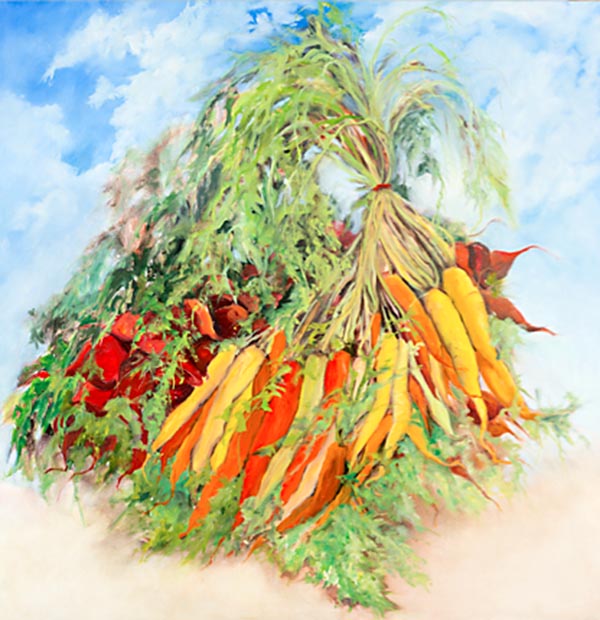
Un-Earthed
New show of selected Jennifer Pazienza paintings
“Let the beauty we love be what we do. There are hundreds of ways to kneel and kiss the earth” are lines from a Rumi poem, a perspective on art and life, that for me has been long in the making. My lifelong relationship with beauty, I owe to my short-lived life with my mother in urban New Jersey. Art as Landscape has been my go to place for personal and social understanding for as long as I can remember.
Rooted in those early years and early drawings the questions and concerns my work raises today are no different in kind. Elaine Scarry’s notion, that beauty compels what she calls “replication, a begetting, the means by which we renew our search for truth and our concern for justice” resonates. And Dennis Dutton, reminds me of the aesthetic urge to find refuge and survival in landscape.
With James Elkins, I ask “whether or not landscape painting can still be practiced by people seriously engaged with the history of art, or if landscape has to find expression in various local and regional contexts?” Just as Dennis Cosgrove describes, I navigate landscape articulations with “an unalienated, insider’s apprehension of the land: of nature and the sense of place, together with a more critical, socially conscious, outsider’s perspective, a landscape way of seeing where landscapes are interpreted symbolically while maintaining respect for the everyday experience of landscape as the setting for life and work.”
On reflection, I ask how landscape as ideology, the political—or landscape as phenomenology, the poetic resides in my work? How do my paintings unearth or bury over the substrata of power relations in art criticism where landscape since the late 19th century is gendered female and hence devalued? In what ways do the paintings call forth landscape as myth and memory? How do they construct and carry the spiritual and aesthetic, the beautiful and the sublime?
My greatest wish is for you is what poet Ted Hughes wanted for his work, for you to come with the “imaginative attitude of a co-author—to enter as deeply and richly as possible, my imaginative worlds” to find your place within them so that you may know and occupy more fully the landscapes of your lives.



No Comments